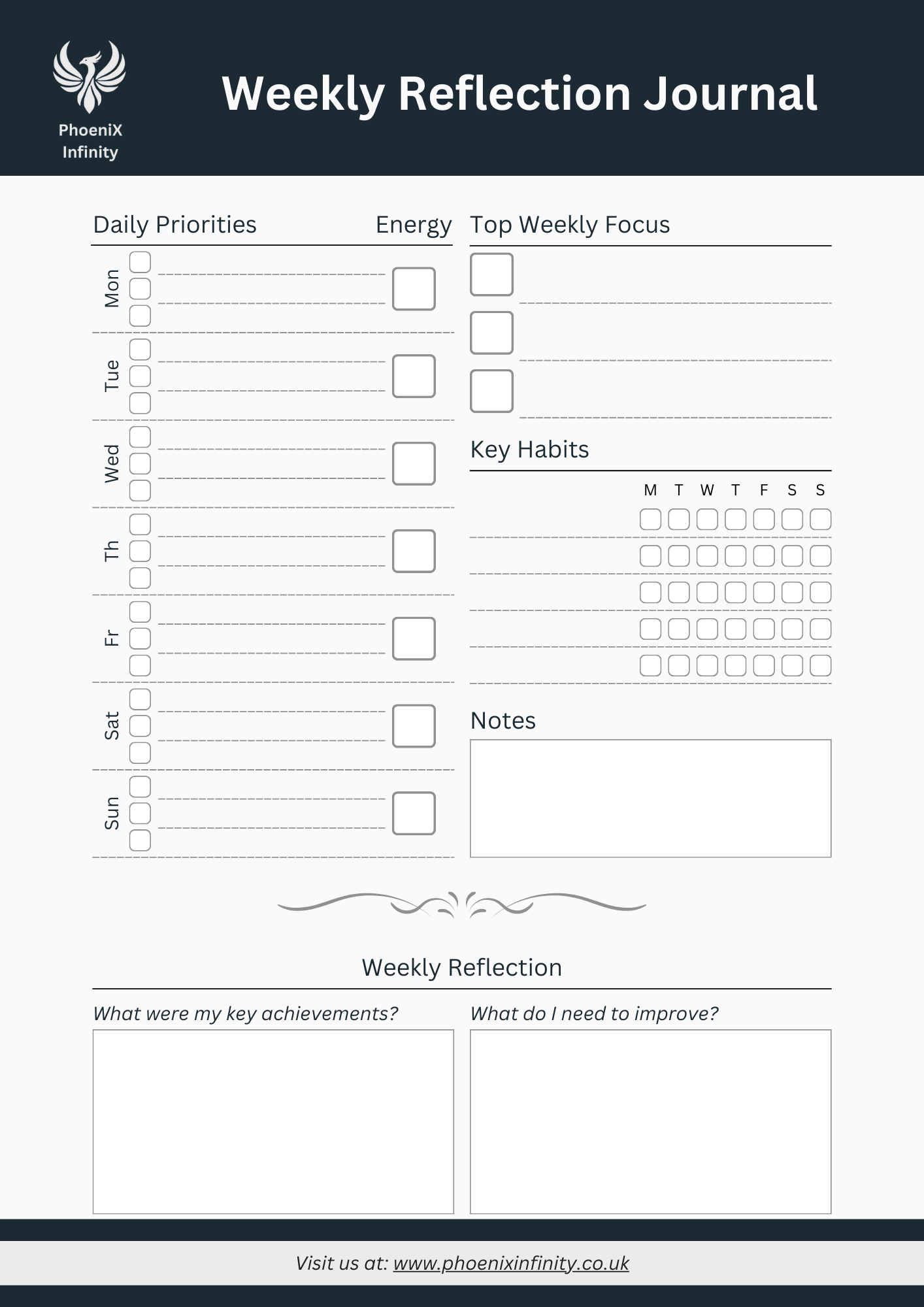Master Your Week in Just 30 Minutes
Read time: 4 minutes
Introduction
Hello there! I’m thrilled to welcome you to our very first weekly newsletter!
As it is the first edition of the weekly, I want to clarify its purpose.
You are getting our guided onboarding to goal setting already. It helps you get quick wins within the first week, while moving to advanced planning and execution topics.
I created this newsletter to give you regular tips and inspiration. I aim to help you upgrade and live a more fulfilling life, at work and above all beyond! This newsletter you will receive weekly around all areas that we cover:
-
Life vision and mission
-
Long- and short-term planning
-
Execution and continuous improvement
-
Discipline & resilience
-
Case studies and FAQs
Feel free to also comment and propose any topics that you would like to hear about.
If you’ve ever felt that your week runs you —rather than the other way around —you’re not alone. With daily tasks, surprise meetings, and personal to-do lists, it's easy to feel overwhelmed. That’s why I’m excited to share a simple method you can use to master your schedule in just 30 minutes a week. Because at the end of the day, your time is your power, and you deserve to use it wisely.
Let’s dive in and discover how you can make every moment count.
Weekly Highlight: Master Your Week in Just 30 Minutes
Does your week feel like a whirlwind of tasks? Missed deadlines and constant stress come along for the ride. You’re not alone. But here’s a secret: in just 30 minutes each week, you can create a simple plan that puts you in control. The routine? A 5-step cycle: Reflect, Brainstorm, Prioritize, Schedule, and Adjust.
- Reflect: Spend a few minutes looking back at your previous week. Ask yourself: What were my biggest wins? What didn’t go so well, and why? By taking note of these reflections, you set the tone for forward momentum.
- Brainstorm: Next, dump every task—personal and professional—onto a single list. Getting them out of your head clears mental clutter so you can see your real priorities.
- Prioritize: Use a tool like the Eisenhower Matrix. It sorts tasks by urgent vs. important. Or, just highlight the tasks with the greatest return. Aim to focus on the 20% of tasks that yield 80% of your results.
- Schedule: Block off specific time periods in your calendar for these key tasks. It helps to group similar tasks and allow buffer times in case surprises pop up.
- Adjust: Plans will change—and that’s okay. Check in midweek to see if you need to move tasks around or change your approach
Actionable Tip: Block 30 minutes this weekend (Sunday works best for many) to go through this 5-step routine. Even if you only manage to do three of the five steps, you’ll see an immediate improvement in how you navigate your week.
|
Inspiration & Personal Growth
“You can't connect the dots looking forward; you can only connect them looking backward." — Steve Jobs
This quote reminds us that what happened in the past isn’t just “yesterday’s news.” It’s a chance to learn, celebrate our achievements, and shape a better tomorrow. If you find that your schedule constantly gets away from you, take a moment to reflect on how you arrived there. Did you accept too many commitments? Did you skip planning in favor of winging it? We’ve all been there! By looking back, you gather the wisdom to make better choices going forward.
Resources & Recommendations
Here are three tools to help you start your 30-minute planning routine:
- Weekly Reflection Journal - It helps you reflect on your week and set priorities for the next one.
- The Eisenhower Matrix helps you prioritize tasks. It helps you focus on the areas that will drive the most value for you.
- “The 4-Hour Workweek” by Tim Ferriss. Fantastic book that challenges the 9-to-5 grind. It advocates for "lifestyle design." It urges people to outsource and automate tasks to focus on what truly matters. He uses principles like the 80/20 rule and mini-retirements. They can help reclaim time, boost productivity, and find a more meaningful life.
If you prefer pen and paper, a simple notebook can work just as well. The key is consistency: find a system you’ll actually use every week.
Weekly Reflection Journal Example:

Eisenhower Matrix Example:

PhoeniX Behind-the-Scenes
This is the first week since PhoeniX went live! We’re currently working on all your feedback to improve the experience you have with us. Do not hesitate to share any feedback – just send a note to [email protected]
Summary
Mastering your week isn't about perfection. It's about a clear plan. You should be in control, not the chaos around you. By spending just 30 minutes, you can set the course for a calmer, more productive seven days. Remember, small steps over time add up to big changes.
So, here’s your challenge for this week:
- Block off 30 minutes in your calendar.
- Follow the 5 steps to plan your week.
- Check in midweek to see if you need to shift anything around.
I’d love to hear about how you’re planning your week. What’s your biggest challenge when you sit down to schedule your tasks? Are you juggling work and family obligations? Do you get distracted by fun-but-not-urgent projects? Hit “Reply” to share your story. Your experience might help inspire others who feel the same way.
And if you’ve discovered a hack or tip that makes planning easier, don’t keep it to yourself—let the community in on the secret!
Until next time,
PhoeniX Team







Responses